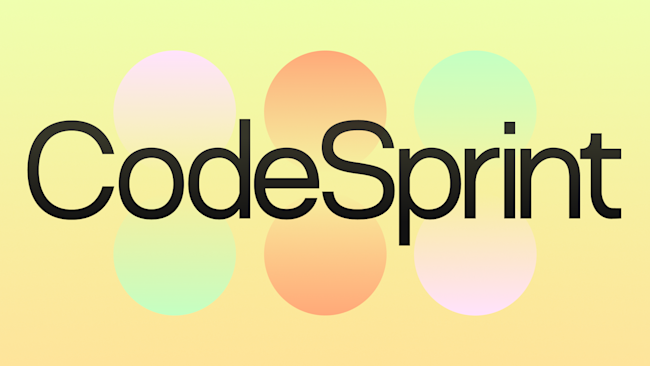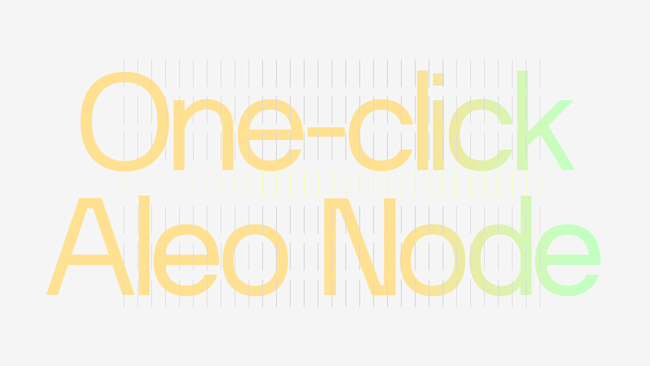CodeSprint Spotlight: Creating privacy-first freelancing
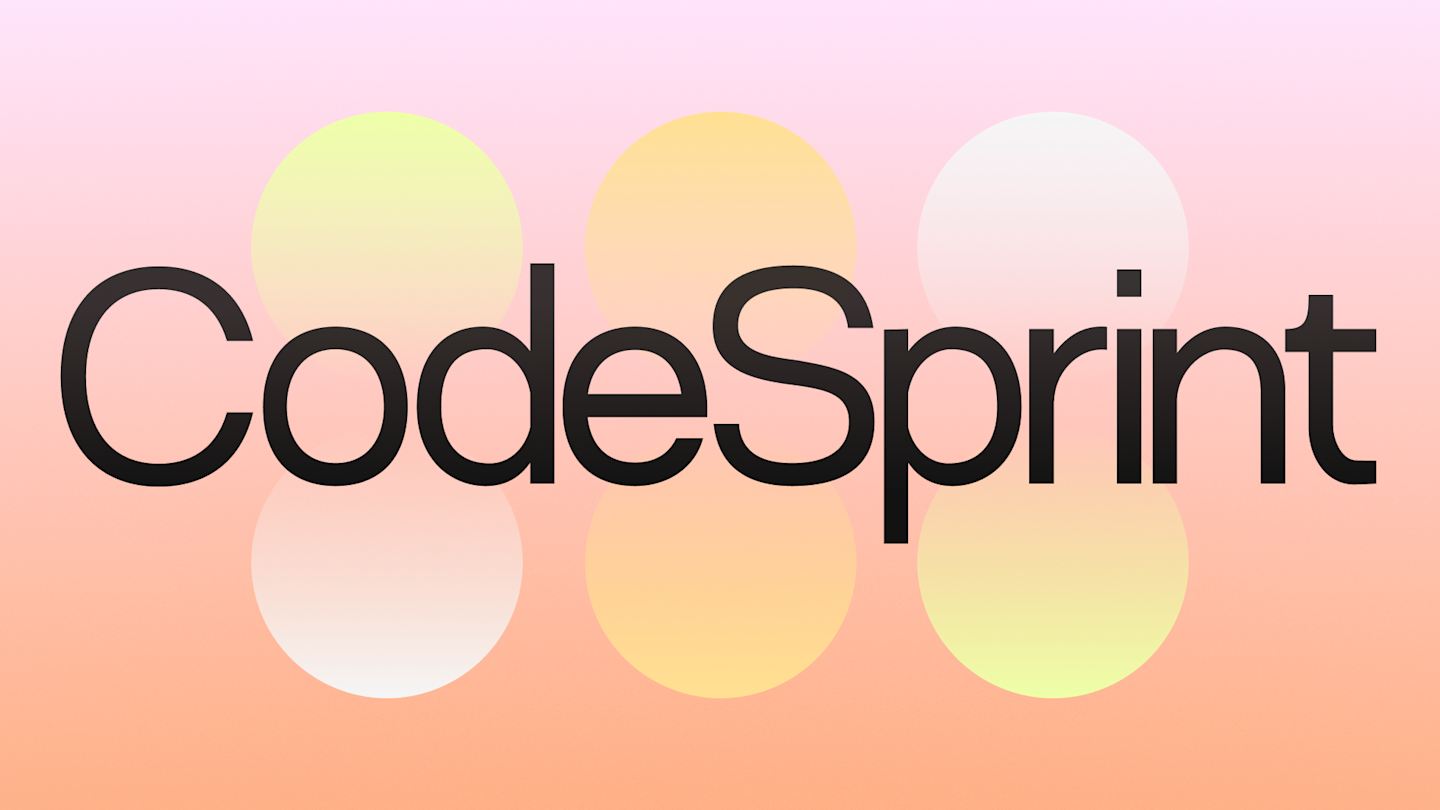
For many freelancers and clients, the current gig economy feels like a constant balancing act between trust and privacy. You either overshare sensitive information to prove credibility, or rely on centralized platforms that have control over your data.
Kufre-abasi Bassey, a front-end developer turned Aleo builder, saw this dilemma and decided to solve it with zero-knowledge technology. His CodeSprint project, Leofolio, reimagines freelancing as a trustless, privacy-preserving ecosystem where reputation is built anonymously and payments are secured through smart contracts—no middlemen required.
We caught up with Kufre-abasi to learn how a bootcamp introduction to Aleo sparked his vision for transforming the freelance industry.
Tell us a bit about yourself. What led you to build on Aleo?
Hi, I’m Kufre-abasi Bassey — a dedicated Software Engineer with a focus on front-end development. I’m passionate about building clean, interactive user interfaces and continuously exploring the evolving world of web technologies. My journey in tech has been shaped by a deep curiosity and a commitment to bridging the gap between user experience and secure, scalable systems.
I was introduced to Aleo during a bootcamp in August 2024 organized by Nigeria’s Aleo Country Lead. That experience marked my first hands-on exposure to building and deploying Leo smart contracts on the Aleo blockchain. I was fascinated by the simplicity of deploying private-by-default applications and the power of Aleo's SDK, which made interacting with smart contracts seamless.
This experience sparked my interest in integrating Aleo with my existing Web2 projects — enhancing them with privacy-preserving features and greater security. I see Aleo as a bridge to a more secure web, and I’m excited about the possibilities it brings for building trust-first applications.
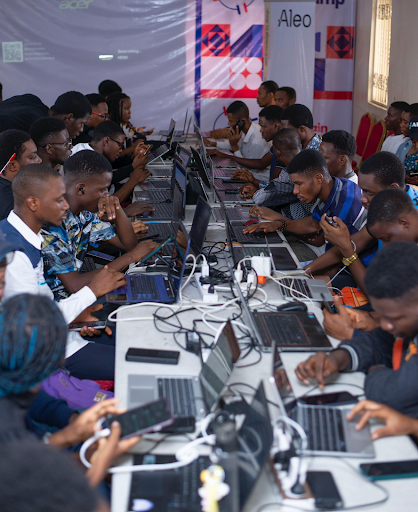
Walk us through your app - briefly, how does it work and what challenges does it address?
Leofolio is a privacy-first freelancing platform built on the Aleo blockchain using ZK proofs. It addresses a major issue in today’s freelance ecosystem (trust without compromise). Freelancers today often have to overshare personal data like payment details, work history, contact details etc to prove their skills, while clients on the other end struggle to manage fast tracking of freelancers' work progress and timely response delivery on task without relying on centralized intermediaries.
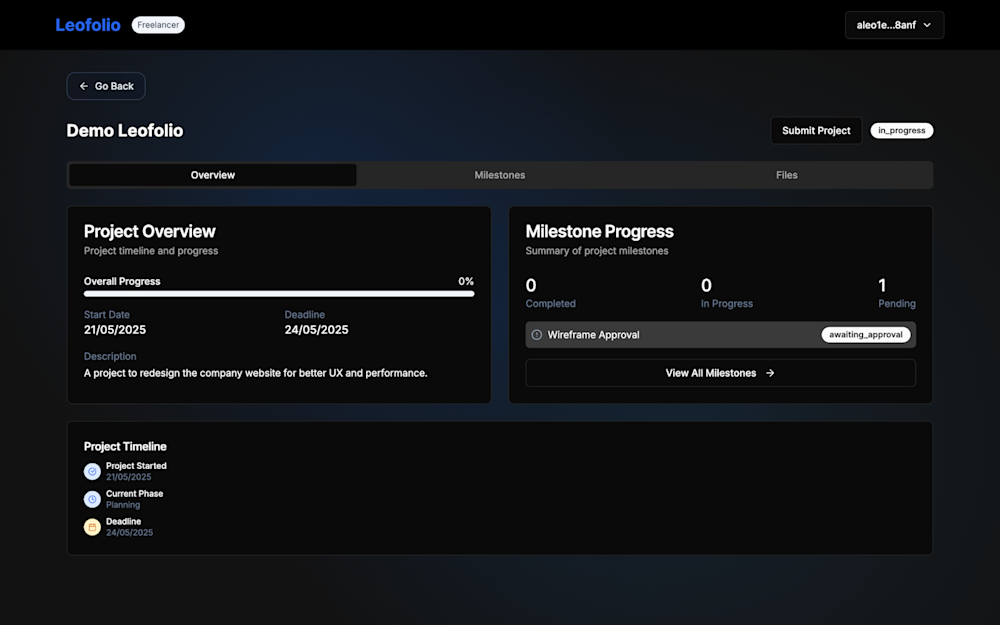
In today’s edgeless digital workspaces theft of sensitive data like payment disputes, personal data, and identity are very common. Leofolio flips that model by allowing freelancers and clients to connect, verify, and transact without revealing sensitive information using Aleo’s ZK infrastructure.
The model is as follows:
Freelancers can prove their skills, work history, or certifications without exposing the raw data.
Clients can lock funds in a smart contract, released only when zk conditions (like delivery proof) are met.
On-chain reputation is built anonymously — you earn trust without revealing your identity.
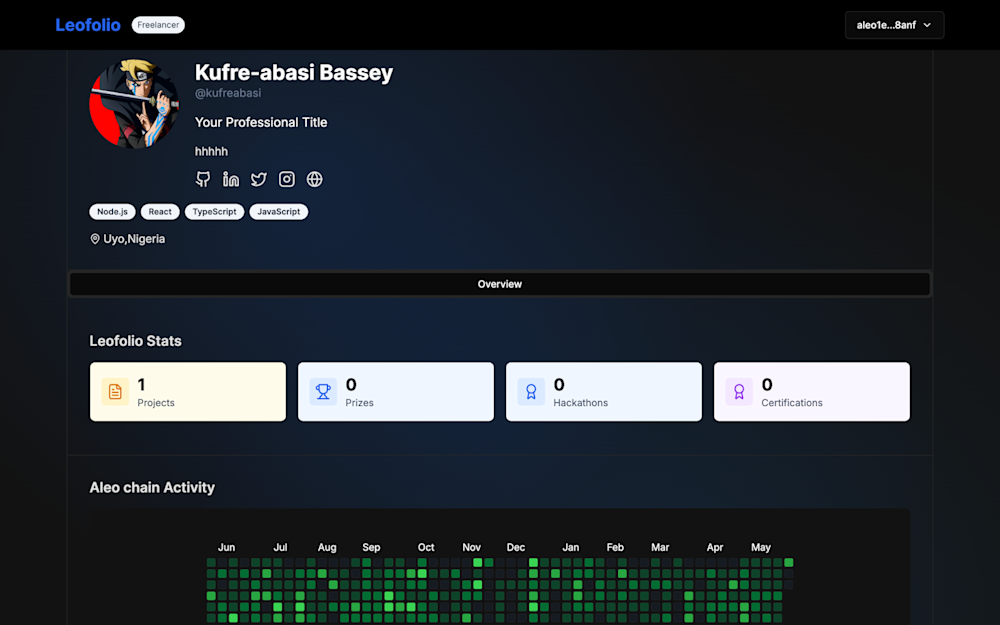
Everything is governed by role-based access controls, ensuring that only the right people see what they’re supposed to.
In short, Leofolio transforms freelancing from a trust-based model to a trustless, privacy-preserving one — tackling both data sovereignty and secure, verifiable work transactions in one platform.
What was the biggest technical challenge you overcame while building?
The biggest technical challenge we faced was implementing a trustless escrow system on the Aleo blockchain that could securely store and release tokens to a freelancer only after a job was completed and approved by the client.
Unlike traditional Web2 systems where escrow logic can be managed by a centralized server, building this on-chain with zero-knowledge privacy required us to carefully design smart contracts in Leo that could:
Lock funds in a secure, private state.
Verify job completion through zero-knowledge proofs without exposing sensitive details.
Release payments only when a specific condition — client approval — was met.
We encountered issues around maintaining state transitions within the contract, especially ensuring that only the employer who created the job could approve and trigger the fund release. In the end, we successfully created a working prototype of a ZK-powered escrow system that enforces trustless payments without sacrificing privacy — a core part of what makes Leofolio unique.
What features or aspects of your app are you most proud of?
The feature we’re most proud of is our zero-knowledge escrow system. It allows clients to lock funds into a smart contract and only release them to the freelancer once the job is completed and approved — without revealing sensitive information about either party or the transaction itself.
Designing this system on Aleo, using Leo, meant building a fully trustless flow that preserves privacy while still enforcing accountability. It's a core innovation that makes Leofolio stand out — combining security, transparency, and data sovereignty in one seamless user experience.
What's next for Leofolio?
Next, we’re focused on refining the user experience and scaling Leofolio for long-term adoption.
We're onboarding a UI/UX designer to streamline the user flow and craft a clean, scalable interface — making it easier for freelancers and clients to interact with the platform seamlessly.
We're working on enabling transactions with stablecoins and other verified tokens on the Aleo blockchain. This will increase accessibility and make our escrow system more practical for real-world freelance payments.
Additionally, we plan to scale and secure our central server infrastructure, which handles minor app processes, to ensure maximum reliability and security.
Beyond these, we have a forward-looking roadmap to:
Integrate decentralized dispute resolution using encrypted evidence.
Enable DAO-based reputation scoring and governance, empowering the community to self-regulate.
Launch a Leo-based SDK to allow other developers to build privacy-first freelance tools powered by zero-knowledge proofs.
All these efforts are aimed at making Leofolio not just a platform, but a robust ecosystem for the future of trustless, privacy-preserving freelance work.
What advice would you give to developers thinking about participating in a future edition of CodeSprint?
My advice to developers planning to participate in a future edition of CodeSprint is simple: focus on solving real-world problems around you. Don’t overcomplicate things — the most impactful solutions often come from simple ideas executed well.
Also, take time to explore the ecosystem you're building in. Identify missing tools or infrastructure and consider building around those gaps. This not only gives you a unique edge in the competition but also positions you to create meaningful products that go beyond the hackathon. tools that people can actually use and rely on. CodeSprint is a great launchpad, but the real win is building something that improves lives and strengthens the ecosystem.
Want to join the next CodeSprint? Keep an eye on our X and Discord for an announcement!
Responses are published with permission from the interviewee.
